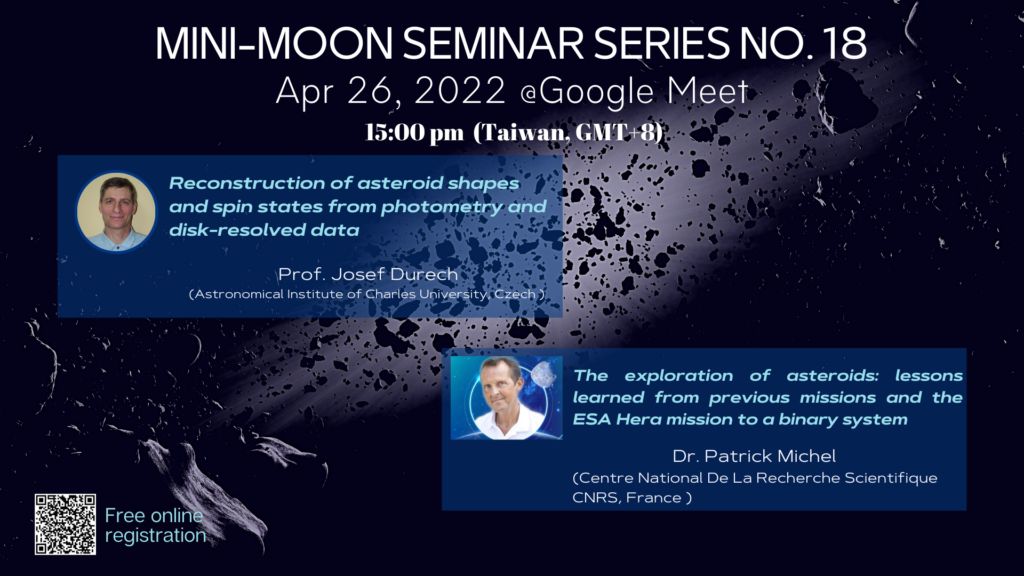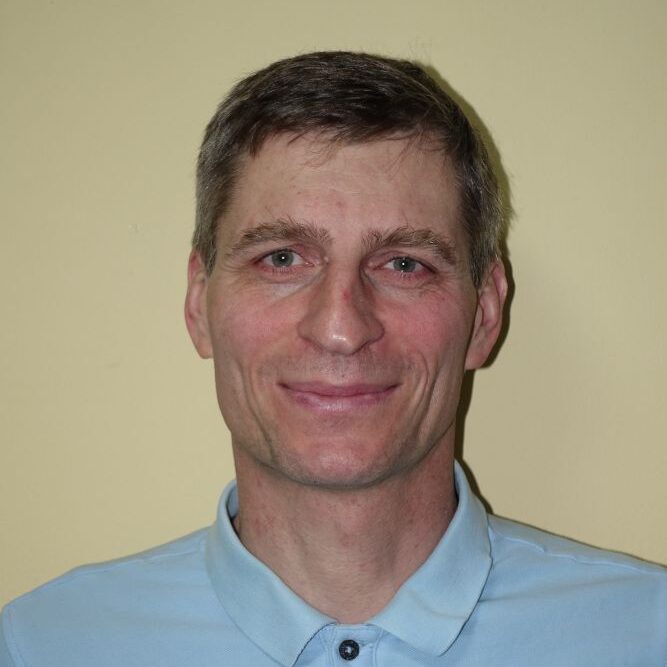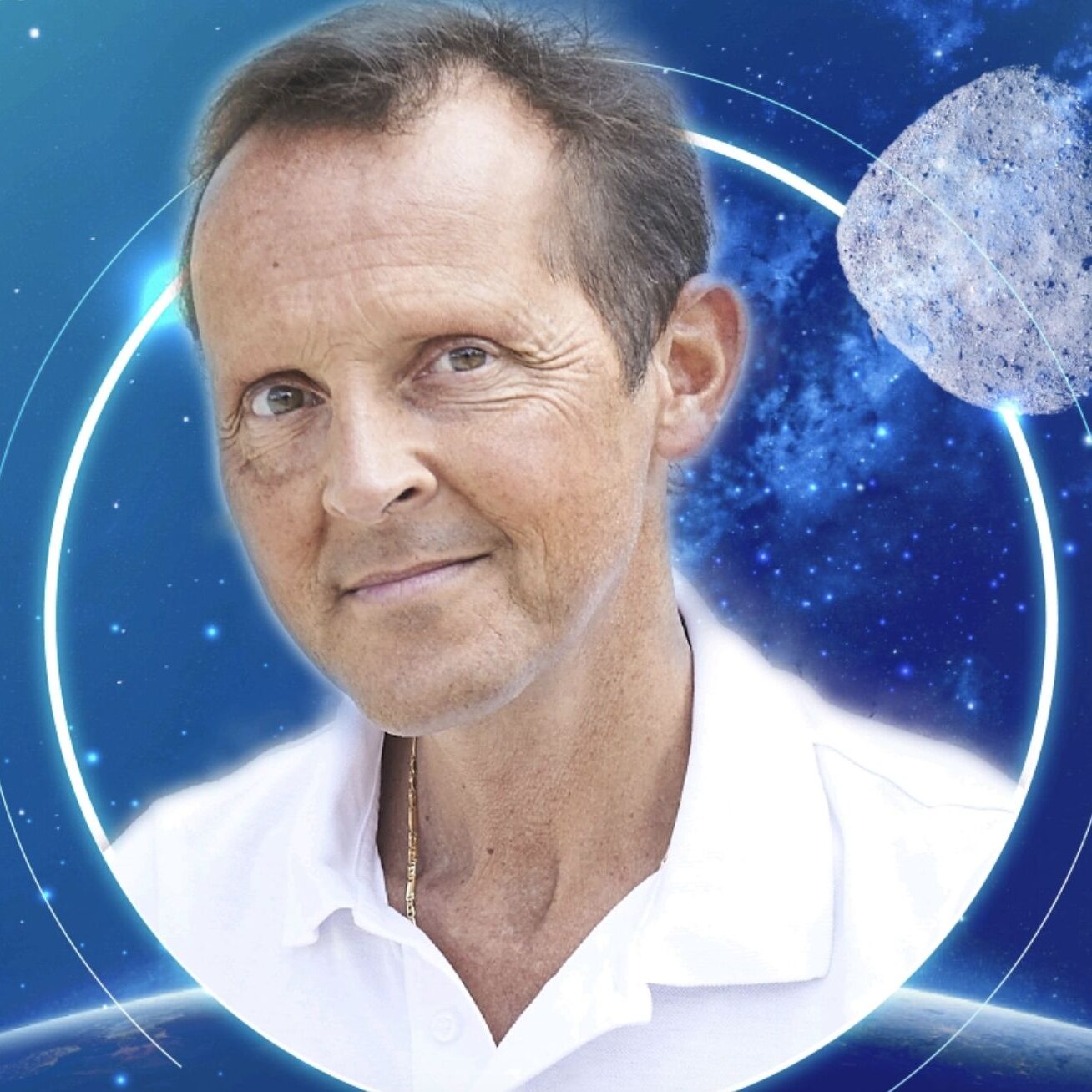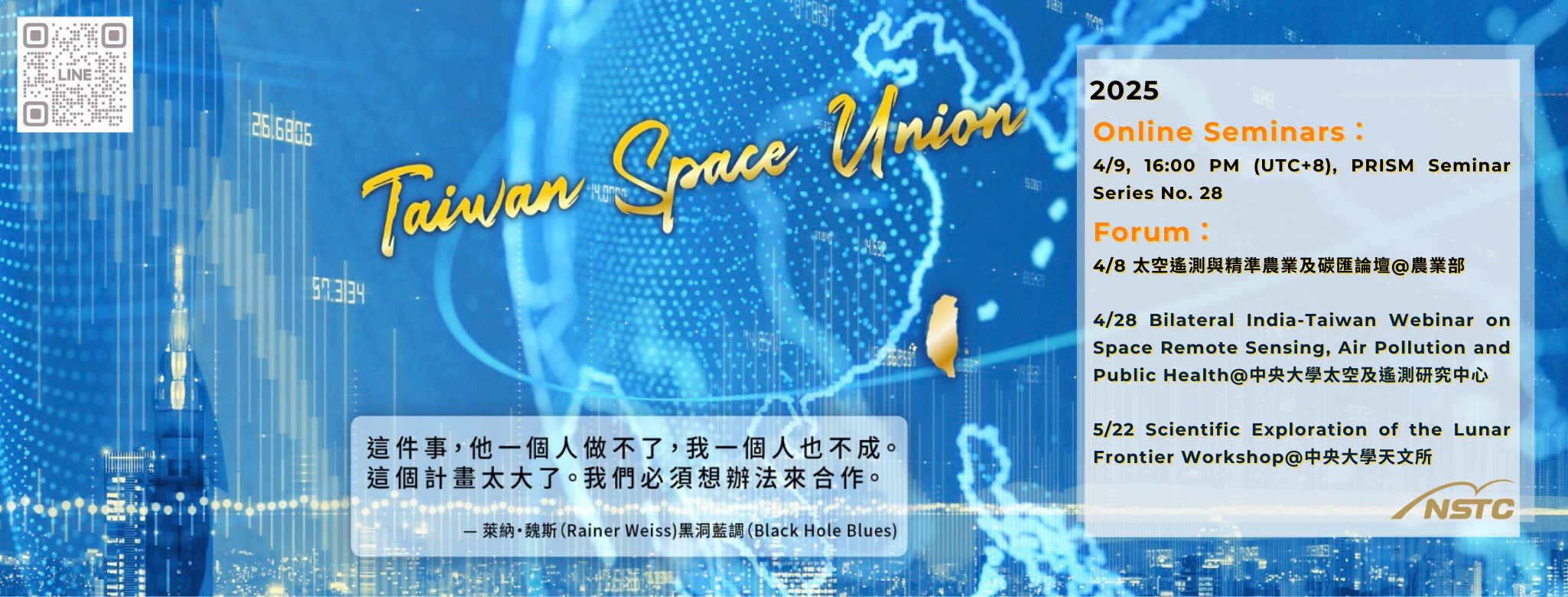
Speakers

Josef Durech
E-mail: durech@sirrah.troja.mff.cuni.cz
Nationality: Czech
Education:
1998–2004 Doctoral study, Theoretical physics, astronomy and astrophysics, Faculty of Mathematics and Physics, Charles University in Prague, Doctoral thesis: Asteroid shapes from disk-integrated photometry
1993–1998 Master study, Astronomy and astrophysics, Faculty of Mathematics and Physics, Charles University in Prague, Diploma thesis: CCD photometry of near-Earth asteroids Professional history
2018–present Institute of Astronomy, Charles University, associate professor
2013–2018 Institute of Astronomy, Charles University, research scientist
2004, 2006–2013 Institute of Astronomy, Charles University, assistant professor
2005–2006 Rolf Nevanlinna Institute, Department of Mathematics and Statistics, University of Helsinki, post-doc
2003–2004 Civil service
Main fields of interest:
Inversion methods and their application to asteroids – deriving physical properties of asteroids from their lightcurves, high-resolution images, occultations, and thermal infrared data.
Awards:
Kopal lecture of the Czech Astronomical Society for important scientific results published within the last few years – awarded in 2020
Research-related roles:
• Scientific administrator of a distributed computing project Asteroids@home
• Administrator and scientific supervisor of the Database of Asteroid Models from Inversion Techniques (DAMIT)
• External scientist of the Pan-STARRS Science Collaboration
• Member of the Large Synoptic Survey Telescope (LSST) Solar System Science Collaboration
• Member of the Joint Science Team of JAXA Hayabusa 2 project
• Member of the Euclid Solar System Objects science working group
• In 2010–15 member of the Steering Committee of Gaia Research for European Astronomy Training (GREAT) programme
• In 2015–16 member of the European Southern Observatory (ESO) Observing Programme Committee (OPC) evaluation panel
• In 2015–2019 member of the Czech Science Foundation evaluation panel
Membership:
• Finnish Inverse Problems Society
• American Astronomical Society
• International Astronomical Union

Patrick Michel
Dr. Patrick Michel is an international expert of asteroids born in the famous village Saint-Tropez in France. He is Director or Research (PhD) at CNRS (French Scientific Research National Center) and leads the team TOP (Theories & Observations in Planetology) of the Lagrange laboratory at the Côte d’Azur Observatory (Nice, France). With more than 180 publications in international peer-review journals, he develops numerical simulations of the impact process between asteroids and of asteroid surface behaviors in conditions that are very different than those on Earth. He is the Principal Investigator (PI) of the space mission Hera, under development at ESA in the Space Safety Program, for launch in 2024 which will contribute to the first test of deflection of a potentially hazardous asteroid with the NASA DART mission by investigating the binary asteroid target and the impact outcome in great details. He is co-Investigator of the two asteroid sample return space missions, Hayabusa2 (JAXA) and OSIRIS-REx (NASA). He is co-PI of the CNES-DLR rover onboard the Phobos sample return MMX mission (JAXA) that will be launched in 2024 and Deputy Lead of the Martian Moons Surface Science Working Group. He is also coordinating the NEO-MAPP project funded by the H2020 program of the European Commission (2020-2023), involving 15 laboratories and industries to study asteroid deflection. He is the lead Editor of the book Asteroids IV (University of Arizona Press, 2015), which reviews asteroid knowledge. He is the President of the Near-Earth Object Working Group of the International Astronomical Union and is a member of the Steering Committee of the International Asteroid Warning Network (IAWN). He was awarded the NASA Silver Achievement Medal, the Carl Sagan Medal by the Division of Planetary Science of the American Astronomical Society for Excellence in Public Communication in Planetary Science, the Prize Paolo Farinella 2013 for his contribution to our understanding of the collisional process, the Prize Young Researcher of the French Society of Astronomy and Astrophysics (SF2A) and the asteroid (7561) Patrickmichel is named after him.
Reconstruction of asteroid shapes and spin states from photometry and disk-resolved data
Josef Durech
The exploration of asteroids: lessons learned from previous missions and the ESA Hera
Patrick Michel

